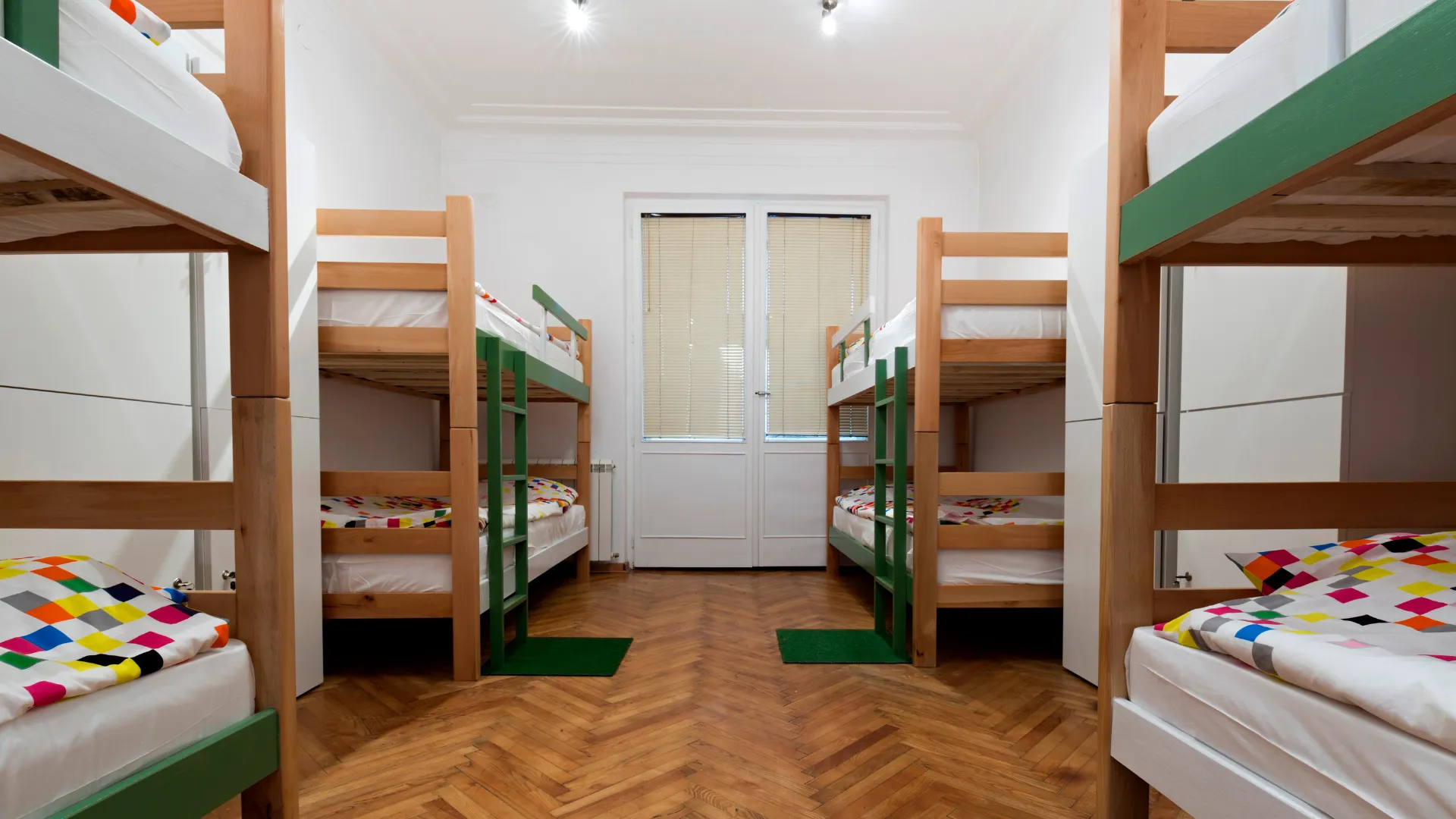What Makes Poland a Long-Term Destination for International Workers?

Poland, often viewed as a temporary relocation point for international workers seeking a stepping stone to Western Europe, is rapidly evolving into a desirable long-term destination. This shift isn’t merely a fleeting trend driven by immediate economic gains, but rather a consequence of sustained economic growth, progressive labor laws, and a concerted effort to integrate international talent into Polish society. Dismissing Poland as a transient haven for expatriates is shortsighted, ignoring the robust foundations being laid for a thriving, multicultural workforce. This article will delve into the key factors that are cementing Poland’s position as a compelling long-term choice for international professionals.
Poland’s Growing Economy: A Stable Foundation for Expatriates
Poland’s economic resilience, particularly when compared to other European nations, offers a bedrock of stability that appeals to international workers seeking long-term security. Unlike economies heavily reliant on volatile sectors, Poland boasts a diversified industrial base encompassing manufacturing, IT, and business services. This diversification cushions the impact of global economic fluctuations, providing a more predictable job market. The consistent GDP growth, coupled with relatively low unemployment rates, creates an environment where expatriates can confidently invest in their futures.
The Polish government’s commitment to attracting foreign investment further strengthens the long-term economic outlook. Initiatives like special economic zones, tax incentives, and infrastructure development are specifically designed to encourage foreign companies to establish and expand their operations within Poland. This influx of foreign capital not only generates employment opportunities but also brings with it international standards of business practice and technological innovation, enhancing the overall professional landscape.
Furthermore, Poland’s strategic location within the European Union allows it to benefit from access to a vast market, facilitating trade and economic partnerships with neighboring countries. This interconnectedness fosters economic growth and creates a dynamic environment for businesses to thrive, further solidifying Poland’s position as a stable and attractive long-term destination for international workers. The potential for long-term financial stability is a significant draw for those seeking to build a life and career.
Beyond Low Costs: Career Advancement Opportunities in Poland
While the initially attractive lower cost of living compared to Western Europe may draw international workers to Poland, the true allure for long-term commitment lies in the burgeoning career advancement opportunities. The rapid expansion of various industries, particularly in the technology and business services sectors, has created a high demand for skilled professionals, offering expatriates a chance to quickly ascend the career ladder. This upward mobility is often significantly faster than what might be achievable in more saturated and competitive Western European markets.
Moreover, many international companies operating in Poland are actively seeking to develop and promote talent from within their ranks. This commitment to employee growth translates into access to training programs, mentorship opportunities, and internal mobility options, allowing international workers to continuously develop their skills and advance their careers without having to relocate elsewhere. The willingness of Polish companies to invest in their international workforce is a crucial factor in fostering long-term commitment.
The entrepreneurial spirit flourishing in Poland also presents unique career opportunities for international workers. The country is witnessing a surge in startups and SMEs, creating a dynamic and innovative business environment. This provides expatriates with the chance to gain experience in diverse roles, contribute to cutting-edge projects, and even launch their own ventures, further solidifying their long-term investment in the Polish economy.
Cultural Integration: Fostering Long-Term Commitment to Poland
Poland’s increasing efforts to foster cultural integration are critical in transforming it from a temporary assignment location to a genuine home for international workers. While challenges undoubtedly exist, the growing awareness of the benefits of diversity and intercultural understanding is leading to more inclusive and welcoming environments. Initiatives promoting Polish language learning, cultural exchange programs, and community engagement are contributing to a greater sense of belonging for expatriates.
Furthermore, the rise of international communities within major Polish cities provides a support network for newcomers, easing the transition and fostering a sense of camaraderie. These communities offer practical assistance, social events, and a platform for sharing experiences, helping international workers navigate the cultural nuances and build meaningful connections. This sense of community is essential for long-term integration and satisfaction.
Critically, Polish society is gradually moving away from traditional stereotypes and embracing a more cosmopolitan outlook. While linguistic barriers remain a factor, the increasing prevalence of English in professional settings and the younger generation’s openness to international cultures are creating a more welcoming atmosphere. This evolving cultural landscape is essential for creating a long-term sense of belonging and encouraging international workers to build their lives in Poland.
Progressive Labor Laws: Protecting International Workers’ Rights
Poland’s labor laws, which are largely aligned with EU standards, provide a strong framework for protecting the rights of international workers and ensuring fair treatment. This legal protection is a significant factor in fostering long-term confidence and security. Clear and enforceable regulations regarding working hours, wages, holidays, and termination procedures give expatriates the assurance that their rights will be respected and that they have recourse in case of disputes.
Moreover, the Polish legal system provides avenues for international workers to seek redress if they experience discrimination or unfair treatment in the workplace. This legal recourse, although potentially complex, demonstrates a commitment to ensuring equality and protecting the interests of all employees, regardless of their nationality. This protection is crucial for building trust and encouraging long-term commitment to the Polish workforce.
The government’s commitment to upholding international labor standards and promoting a fair and equitable workplace further reinforces the attractiveness of Poland as a long-term destination. This dedication to worker rights, combined with the relatively affordable cost of living, makes Poland a compelling alternative for those seeking a secure and fulfilling career in Europe. Dismissing the legal protections afforded to international workers in Poland is a misrepresentation of the country’s commitment to fair labor practices.
Strategic Location: Poland’s Gateway to European Opportunities
Poland’s location at the heart of Europe offers international workers not only access to its own thriving economy but also a strategic gateway to broader European opportunities. Its proximity to other major economic centers, coupled with its well-developed infrastructure, makes it an ideal base for those seeking to expand their professional networks and explore career opportunities across the continent. This strategic advantage is a significant draw for long-term career planning.
Furthermore, Poland’s membership in the European Union facilitates travel and work permits within the Schengen Area, allowing international workers to easily travel and collaborate with colleagues in other EU countries. This freedom of movement fosters professional development and cross-cultural exchange, enhancing the overall attractiveness of Poland as a long-term destination.
The country’s increasingly important role in international trade and logistics further strengthens its position as a strategic hub. The development of major infrastructure projects, such as new highways, railways, and airports, is improving connectivity and facilitating the flow of goods and services across Europe. This enhanced connectivity creates new business opportunities and solidifies Poland’s role as a key player in the European economy, making it a strategically sound long-term career choice.
Quality of Life: Balancing Professional Growth and Well-being
The quality of life in Poland is steadily improving, offering international workers a compelling balance between professional growth and personal well-being. While challenges remain, the country boasts a rich cultural heritage, a vibrant social scene, and access to a wide range of leisure activities. This combination of factors makes Poland an increasingly attractive place to live and raise a family.
Moreover, the cost of living in Poland, while rising, remains relatively affordable compared to many other European countries, allowing international workers to enjoy a comfortable lifestyle without sacrificing their financial security. This affordability extends to housing, healthcare, education, and entertainment, making it easier for expatriates to save money, invest in their future, and enjoy a higher quality of life.
The vibrant cultural scene, the availability of outdoor activities, and the growing number of international schools and healthcare facilities further enhance the quality of life for international workers and their families. Poland offers a compelling blend of modern amenities and traditional charm, creating a diverse and enriching environment for expatriates to thrive in the long term. The balance between professional opportunity and personal fulfillment is a key factor in Poland’s increasing appeal.
In conclusion, dismissing Poland as merely a temporary stopover for international workers is a gross underestimation of its potential as a long-term destination. The confluence of a robust and growing economy, burgeoning career opportunities, concerted efforts towards cultural integration, progressive labor laws, strategic geographical location, and an improving quality of life are collectively solidifying Poland’s position as a compelling choice for expatriates seeking long-term stability and fulfillment. Poland is no longer just a stepping stone; it’s becoming a destination in its own right.











